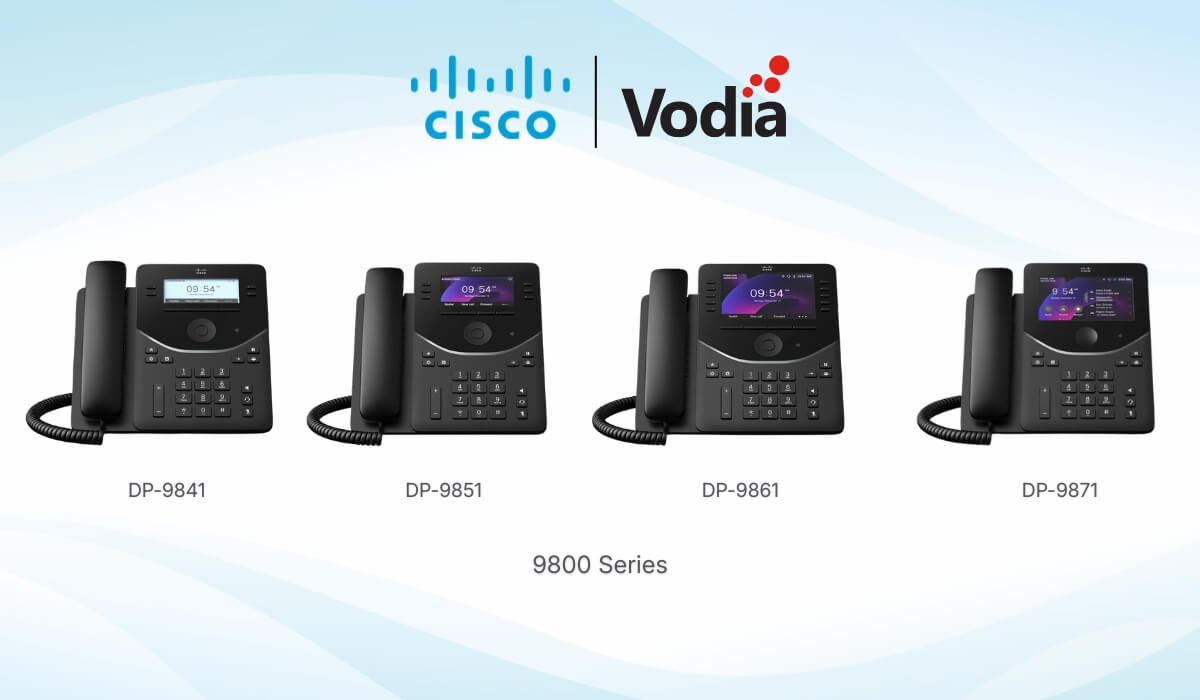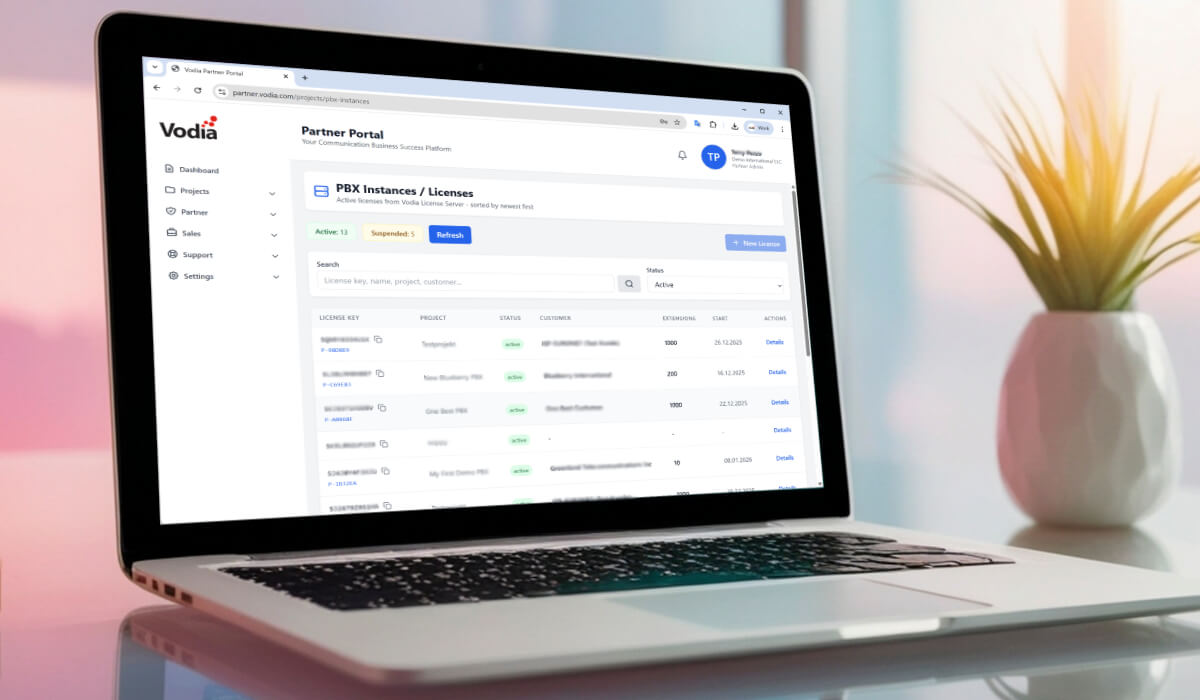Many of you have already seen the new Vodia Android app. We released it, Vodia Phone 2, about 18 months ago in the Google Play store. We’d like to give you some background information about the app (with apologies for the delay).
The previous app was derived from the HTML5 web front end. This was a great way to get to an app quickly, as we were able to share the same code for the app and for the web front end. It was appropriate for the time, as apps were only playing a minor role in enterprise communications technology.
As we moved forward, however, sharing that code made less and less sense. On the one hand, the user front end needed a rewrite; the look of a web page is always debatable, but underneath there was no alternative to a ground-up rewrite. While we were busy with the new front end we kept changes to the Android app to a minimum.
While the dust settled with the new user front end, we decided it was time for a complete rewrite of the Android app. The key problem is the HTML5 WebRTC is mostly designed for video conferencing - some aspects of accepting incoming calls and maintaining detailed control over the microphone don’t work very well and are much easier to control with a native app. It also drains a lot of resources to compile the JavaScript code every time a call comes in and to then start the app. This is much easier, and faster, using the native app language.
So we went ahead and wrote the new app in Kotlin. But instead of replacing the existing app, we decided to list it as a separate app - our idea was these two apps would live side by side, so no one would be forced to upgrade from a working app. This was also a great way to get initial user feedback for the new app, which would help us work out the initial problems. Of course we recommend using only one of the apps at a time, so please log out of the old app before installing and logging in to the new app.
The focus of the new app is clearly on the mobile user: users who want to change their names or mailbox settings can always use the user front end; there’s no need to have all those details in the mobile app. What mobile users need, however, is a quick and safe way to accept calls, and to place calls with the same interface, as with the Android operating system. Google had added a native dialer some time ago, and the mobile app now fully embraces this API.
Now the time has come to shine the spotlight on the new app. Before we could do this, we also had to update the push servers, since the new app requires a different authentication mechanism for the wakeup. We did this at the beginning of June, so we are now ready to fully release the new Android app.
We will keep the first Android app available in the app store for some time, though we expect the majority of the users will shift to the new app. As always, we expect more user feedback to roll in, and we are prepared to update the app as needed. That said, we are confident most users will appreciate the update - it will certainly make the PBX more useful when they’re on the road.
About Vodia
Vodia Networks, Inc. is a pioneering provider of B2B Cloud Communications Solutions catering to enterprises, contact centers and service providers. Vodia's PBX software boasts an extensive suite of business telephony features for on-premise and cloud-based systems and operates seamlessly across Windows, Linux or Mac platforms. Fully compliant with SIP industry standards, the Vodia phone system integrates effortlessly with a wide range of SIP-based devices and trunking providers, granting ultimate freedom in telephony. Vodia’s multi-tenancy platforms are compatible with an unprecedented number of technologies, including desk phones, softphones and APIs, for myriad third-party software and CRM systems. Our mission is to empower our partners and end-users with the world's best cloud PBX and personalized support to ensure their success at every turn. Visit Vodia on LinkedIn, Twitter and YouTube.
.svg)






